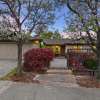Homeowners Insurance - Policy Exclusions
Does a Homeowners Insurance policy cover everything that involves or occurs at your home? Are all types of damage to the home's structure covered?
There are several fairly obvious items that are not covered by a Homeowners Insurance policy. These include intentional acts, illegal acts, and fraudulent acts. If you intentionally burn your home down, your Homeowners policy will not provide any coverage. Similarly, if you are personally liable for any damages related to the sale or provision of illegal drugs, for example, the Liability coverage in your Homeowners policy would not apply.
In addition, if there are instances of false statements in conjunction with the policy issuance, the Homeowners policy coverages may not apply. For example, if you tell your Homeowners Insurance carrier that you have a fire alarm that is monitored by an alarm, like ADT or Bay Alarm, you will receive a discount on your Homeowners Insurance premium. If a fire causes damage at your home and it turns out that you did not have a monitored fire alarm, the carrier can decline to pay for your loss, denying coverage for material misrepresentation.
But what about the policy exclusions that are not so obvious?
Common California Homeowners Policy Exclusions
Earth Movement - In California, all Homewners-type policies exclude losses resulting from earth movement, including earthquake, landslide, mudslide, and mudflow. In Burlingame, San Mateo, and most of the Bay Area, the risk of Earthquake loss is fairly high, so if you want to protect yourself and your home from this type of loss, consider carrying separate Earthquake Insurance, which will be discussed in more detail in next month's post.
Flood, Surface Water, and Repeated Seepage or Leakage - Generally, in order for water-related losses to be covered, the loss has to result from sudden and accidental discharge or water. For example, if your dishwasher breaks, causing water damage to your kitchen cabinets and walls, the damage would usually be covered by your Homeowners policy. In order to protect yourself against Flood losses, you would need to purchase a separate Flood Insurance policy. Depending on the Flood zone in which your home is located, your lender may require this coverage (specifically applicable in almost all of Foster City and in San Mateo locations within a couple of miles from the Bay).
Fungi, Mold, and Rot - Losses caused by fungi, mold, and rot, including dry rot, are specifically excluded from the Homeowners policy coverages.
Business Pursuits - Unless specific coverage is added, all Liability damages arising out of business pursuits would not be covered by a Homeowners policy. There is generally minimal coverage included in the Homeowners policy for Business Property (i.e. computers and equipment that may be at your home). If you are operating a business at home generating more than $10,000 of annual revenue, you should strongly consider purchasing at least a basic Commercial Insurance policy and be aware that business related losses that occur at your home may not be covered by your Homeowners policy.
Inadequate/Defective Design, Repair, Construction, Renovation, and Maintenance - If you purchase a home that has a roof deck, and it turns out that there is damage to the ceiling inside of your home under the roof deck that is deteremined to be caused by poor sealing (i.e. defective construction), the resulting damages would not likely be covered by your Homeowners policy. Another example: if you purchase a home that does not have proper surrounding irrigation and that is located at the bottom of a downward sloping driveway, damages to the exterior/interior walls caused by water pooling around the home are also not likely to be covered due to the inadequate design of the home.
Lastly, the Homeowners policy coverages only apply to losses that occur during the policy period. So, if you purchase a home with pre-existing damage of which you are aware, your Homeowners coverages will not apply to related or ensuing losses. To help avoid some of these situations where damages to your newly purchased home would not be covered by your Homeowners Insurance, talk with Raziel about detailed Home Inspections and make sure that you thoroughly review and understand the key findings of such reports, including action items that require repair or replacement.
This guest post is part of the series Uninsured – Tips to Protect Yourself Using Insurance written for the Burlingame Properties blog by Meghan O’Neill Hanson. Meghan is a personal insurance expert at MacCorkle Insurance Service in Burlingame and works with clients throughout the peninsula. She has worked previously as a CPA at PricewaterhouseCoopers as well as at the private equity firm Kohlberg Kravis Roberts & Co (KKR). Meghan is a Bay Area native with roots in thoroughbred horseracing throughout Northern and Southern California.
Meghan’s other helpful articles:
Homeowners Insurance - The Liability Coverages
Homeowners Insurance Coverages – Other Structures, Personal Property, & Loss of Use
Homeowners Insurance Policy – Property Coverages – Part 1: Dwelling Coverage

This article is copyrighted by Raziel Ungar and may not be reproduced or copied without express written permission.







